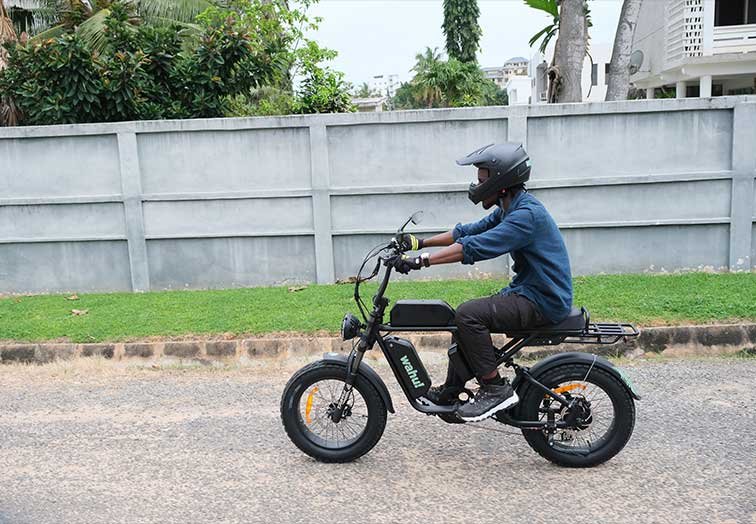Several challenges plague Africa’s transportation sector, including congested cities, polluted air, high operating costs for traditional vehicles, and limited access to reliable transportation. According to the State of Global Air 2024 report, air pollution accounted for 8.1 million deaths globally in 2021, making it the second leading risk factor for death. This staggering figure underscores the urgency for sustainable solutions. In Africa, particulate matter emissions from outdated vehicles contribute significantly to this crisis. Ghanaian entrepreneur Valerie Labi recognised these challenges and sought to create a sustainable solution.
With a finance and social entrepreneurship background, Labi’s passion for addressing Africa’s transportation woes led her to co-found Cargo Bikes Africa in 2020. This venture later merged with MANA Mobility and was rebranded as WAHU Mobility in 2022. Labi’s vision for WAHU Mobility is rooted in her experience in Tamale, Ghana, where she witnessed the need for affordable, reliable, and sustainable transportation.
The company designs, engineers, and manufactures electric vehicles in Ghana tailored to Africa’s unique challenges. Their electronic bicycles are built to last, with reinforced suspension for off-road use, and can support weights of up to 150 kg. With a range of up to 140 km on a single charge, these vehicles address a critical need for local entrepreneurs and small business owners. The eBikes are also environmentally friendly, eliminating fuel costs and carbon emissions.
By providing affordable payment plans and minimising maintenance costs, the company empowers individuals to transform their livelihoods. Delivery service drivers, for instance, can save significantly by switching from petrol-powered vehicles to electric ones. This reduction in operating costs creates jobs and stimulates economic growth, particularly in rural areas.

Labi’s commitment to empowering women is evident in the company’s rent-to-own program. By providing financial independence to bike entrepreneurs, particularly women in rural regions, the company promotes gender equality, decent work, and climate action. This alignment with the United Nations’ Sustainable Development Goals demonstrates the company’s dedication to creating lasting positive change.
As WAHU Mobility expands across Africa, Labi envisions partnerships with local governments and businesses to promote sustainable transportation solutions. Her ambition extends beyond Ghana’s borders, with plans to establish micro-factories and license designs, production procedures, and branding for other regions. This pan-African approach recognises the continent’s diverse needs while harnessing local expertise to drive innovation.
WAHU Mobility’s impact transcends transportation; it transforms communities. Valerie Labi foresees improved healthcare outcomes by enabling obstetricians to expand their radius of action. The potential for electric vehicles to facilitate medical deliveries, particularly in rural areas, is vast.
Labi’s pioneering work is driving transformative change in Africa’s transportation landscape. By combining innovative technology, sustainable design, and social entrepreneurship, WAHU Mobility is well-positioned to address the continent’s transportation challenges, improve lives, foster economic growth, and protect the environment.



